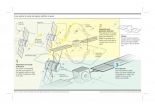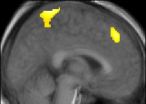Personality and exercise levels may be linked
2010-10-14
(Press-News.org) There may be a fundamental link between aspects of an individual's personality and their capacity to exercise or generate energy, recent research suggests.
Humans are not the only animals that choose to exercise and – as with people - individuals within the same species differ in their levels of activity, says Dr Peter Biro, a senior lecturer in the UNSW Evolution and Ecology Research Centre, in a review article in the journal Trends in Ecology and Evolution, with colleague Judy Stamps of the University of California, Davis. Dr Biro is an Australian Research Council Future Fellow.
Likewise, scientists now recognise that many animals have 'personality', in that they display consistent differences in behaviours. Dr Biro believes it is significant that those behaviours often relate to the rates at which they acquire and expend energy through feeding or activity.
"Some of us are couch potatoes while others are drawn to sport and exercise," notes Dr Biro. "We often associate the athletic 'jock' type or person with being aggressive and social, whereas the more sedentary 'nerd' often is seen as more socially awkward and submissive.
"These are generalisations, but most people would probably agree there is some truth to them. If so, why should individuals differ in their propensity for activity and in their personality, and why might they be related? "
The article reviews a wide range of recent research into these questions and concludes that there is now enough evidence to suggest a link between an individual's personality and the rate of its metabolism – the chemical process that converts food into the energy that fuels the body.
"Animals in captivity often engage in energetically demanding behaviour when they have unlimited food available," Dr Biro says. "Mice spend considerable time on running wheels, for example, and other animals often pace back and forth in zoo enclosures. Given they don't need to move about in search of food as they would in nature, we might ask why they are apparently 'exercising'.
"Recent research suggests that this behaviour might be related to an individual's capacity to generate energy - its 'metabolic capacity'. For example, mice in isolation that have high metabolism tend spend more time on running wheels, and run faster, than those with low metabolism.
"Male crickets with sex on their mind tend to call to attract mates more and have higher metabolism than those with slower metabolism."
Metabolism and aggression are also linked. It has now been documented, for example, in several species of fish and birds that individuals with high metabolism tend to be more aggressive and dominant over those with slow metabolism.
The amount of energy devoted to energetically demanding activities differs among individuals, Dr Biro says. These differences in energetic capacity - along with the tendency for metabolism to be consistent over long periods - might provide a very general explanation for personality in animals.
"It may just be that some individuals generate much more energy than others and when those individuals are captive with abundant food, they must outlet 'excess' energy that is normally expressed in nature in activities such as feeding and defence of food supplies.
"We are still some ways from a really solid understanding of the links between metabolism and personality in animals, but recent research suggests these ideas have merit and are worth studying further."
INFORMATION: END
ELSE PRESS RELEASES FROM THIS DATE:
2010-10-14
An Australian team of scientists has uncovered a quality control mechanism that must take place for our immune system to subsequently effectively destroy harmful viruses and bacteria.
The findings were published today in the prestigious international journal Nature.
The team solved a 15-year puzzle by working out the structure and function of a protein called pre T alpha that is essential in guiding the correct expression of various receptors expressed by T lymphocytes, white blood cells of the immune system.
These receptors, known as T cell receptors, recognise ...
2010-10-14
Jerusalem, Oct. 13, 2010 – Unlike humans, honey bees, when thrown into highly time-altered new societal roles, are able to alter their biological rhythms with alacrity, enabling them to make a successful "quick switch" in their daily routines, according to research carried out at the Hebrew University of Jerusalem.
With people, on the other hand, disturbances to their biological clocks by drastic changes in their daily schedules are known to cause problems -- for example for shift workers and for new parents of crying, fitful babies. Disturbance of the biological clock ...
2010-10-14
Those who do a lot of driving know how tiring long car trips and night driving can be. And a simple fraction of a second can decide the difference between life and death. According to the German Road Safety Council e.V. (DVR), one in four highway traffic fatalities is the result of momentary driver drowsiness. Researchers at the Fraunhofer Institute for Digital Media Technology IDMT in Ilmenau, Germany, have developed an assistant system that tracks a driver's eye movements and issues a warning before the driver has an opportunity to nod off to sleep.
The special feature ...
2010-10-14
Within the framework of this research project, "Acoplamiento y Agarre de Satélites mediante Sistemas Robóticos basado en Visión (Docking and Capture of Satellites through computer vision) (ASIROV)", the scientists have developed algorithms and strategies to dock and capture a disabled satellite through the use of a space vehicle, called a "chaser", which autonomously carries out this function. "In this way", explained the head of this research study, Mohamed Abderrahim, who is from the UC3M Department of Automated Systems Engineering, "we attempt to carry out all ...
2010-10-14
DES MOINES, IOWA (14 October 2010)—Crop specialists in Kenya and Uganda have laid the groundwork for confined field trials to commence later this year for new varieties of maize genetically modified to survive recurrent droughts that threaten over 300 million Africans for whom maize is life, according to a speech given today by the head of the African Agricultural Technology Foundation (AATF) at the World Food Prize Symposium.
Scientists working with AATF believe it's important to explore the potential of biotechnology to maintain and increase food production in Africa, ...
2010-10-14
Learning from competitors is a critically important form of learning for animals and humans. A new study has used brain imaging to reveal how people and animals learn from failure and success.
The team from Bristol University led by Dr Paul Howard-Jones, Senior Lecturer in Education in the Graduate School of Education and Dr Rafal Bogacz, Senior Lecturer in the Department of Computer Science, scanned the brains of players as they battled against an artificial opponent in a computer game.
In the game, each player took turns with the computer to select one of four ...
2010-10-14
BEER-SHEVA, ISRAEL, October 13, 2010 — A new study conducted by a researcher at Ben-Gurion University of the Negev (BGU) for Jerusalem's Taub Center for Social Policy Studies in Israel reports that Israeli's have a higher life expectancy on average than Americans and residents of other OECD (Organization for Economic Cooperation and Development) countries.
According to the most recent data, from 2005, the average American life expectancy is now 78 years; for Israeli Jews, approximately 81 years and Israeli Arabs, 79 years. Japan has the highest life expectancy of OECD ...
2010-10-14
University of Granada researchers have developed a new computer technique that allows to "train" computers to interpret the visual contents of a video or picture. This advance will allow to classify automatically pictures basing on whether individuals or specific objects are present in such images. Videos can also be classified according to specific poses.
At present, computer search and classification of images is made basing on the name of the file, folder or on features as date or size, but the visual information contained was never used for classification purposes. ...
2010-10-14
HOBOKEN, N.J. (Sept. 13, 2010) – More than 50 million Americans will experience some degree of tinnitus in their lifetime, according to the American Tinnitus Association. Tinnitus is a hearing condition that causes the constant misperception of sound, including hissing, ringing and rushing noises. A study recently published in Panminerva Medica reveals that Pycnogenol® (pic-noj-en-all), an antioxidant plant extract derived from the bark of the French maritime pine tree, is effective in relieving tinnitus symptoms by improving blood flow in the inner ear.
"Impaired blood ...
2010-10-14
San Francisco, Calif., 13 October, 2010 - Elsevier Business Intelligence, publisher of PharmAsia News, IN VIVO and "The Pink Sheet," today announced the agenda for Windhover's 2nd PharmAsia Summit (Oct. 25-26). This year's Summit will bring top biopharma leaders from Asia and the U.S. to San Francisco to share what works and what doesn't in China, India, Japan and the Pacific Rim.
At the PharmAsia Summit, you'll hear Asia strategies and case studies from industry leading experts on dealmaking, commercial strategy, outsourcing, regulatory risks, IP protection, and pricing ...
LAST 30 PRESS RELEASES:
[Press-News.org] Personality and exercise levels may be linked


